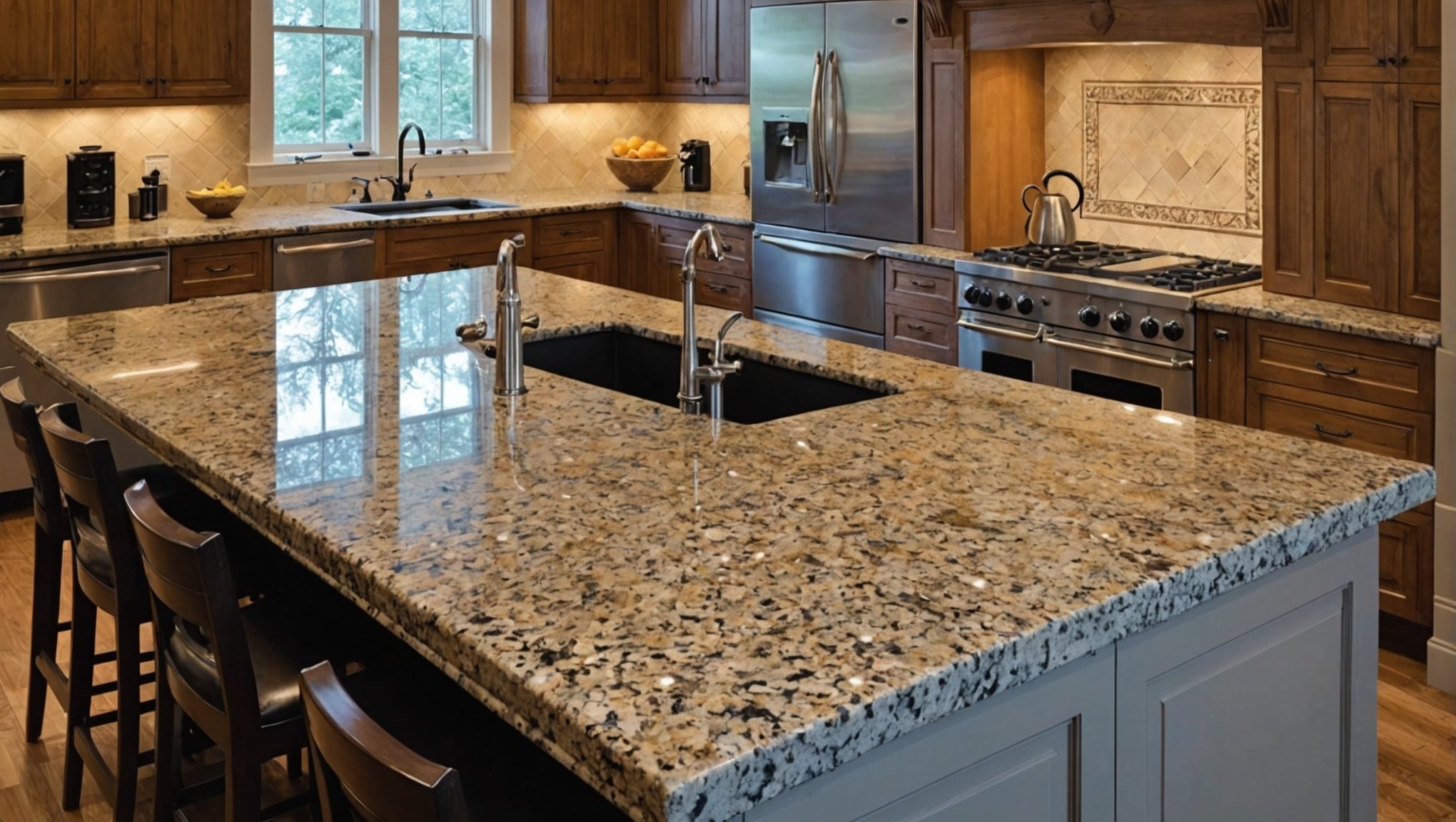When it comes to adding a touch of elegance and durability to your kitchen, granite countertops are indisputably one of the best options. But just like any other item in your household, these natural stone surfaces require proper care and maintenance to retain their aesthetics. Whether you are dealing with spills, smudges, or stains, we’ve got you covered. In this comprehensive guide, we’ll teach you the most effective ways to clean and maintain your granite countertops.
Selecting the Right Cleaning Materials
Before you roll up your sleeves, it’s crucial to understand the importance of selecting the right cleaning materials for your granite countertops. Remember, using the wrong cleaning materials could damage the surface and strip off the sealer, leaving your countertop vulnerable to stains.
In the same genre : Can installing a water filter on your kitchen tap improve coffee taste?
Understanding the Nature of Granite
Granite is a natural stone, which means it’s porous by nature. When not sealed properly, it can absorb substances like oil, wine, and juice, which may result in permanent staining. This is why it’s essential to avoid using harsh or abrasive cleaners like bleach, vinegar, or bathroom cleaners, which can damage the surface and cause discoloration.
This might interest you : Can installing a water filter on your kitchen tap improve coffee taste?
Choosing the Right Cleaner
When it comes to choosing a cleaner for your granite countertop, opt for a pH-neutral cleaner specifically designed for natural stone. These cleaners are gentle on the granite and won’t damage the sealer. Alternatively, you can use mild dish soap and warm water, but avoid doing this regularly as soap can build up and dull the granite’s shine over time.
The Cleaning Process
Now that you have the right materials, let’s dive into the step-by-step process of cleaning your granite countertops.
Step-by-step Guide to Cleaning Granite Countertops
-
Wipe off the Surface: Start by wiping off the surface with a soft, dry cloth to remove any loose debris or dirt.
-
Clean with Warm Soapy Water: Mix a few drops of mild dish soap with warm water. Soak a soft cloth or sponge in the solution and wring it out so it’s damp, not soaking wet. Wipe down the entire countertop, making sure to pay extra attention to any stained or sticky spots.
-
Rinse and Dry: Rinse the soap off using a wet cloth and warm water. Once all the soap is removed, dry the countertop thoroughly using a soft, dry cloth to prevent water stains and streaks.
Stain Removal Tips
Despite your best cleaning efforts, your granite countertop may still fall victim to stubborn stains. Here are some essential tips to effectively remove different types of stains from your countertop.
Oil-based Stains
Oil-based stains such as grease, cooking oil, or milk can darken the stone. To remove these stains, create a cleaning paste with baking soda and water. Apply it to the stain, cover with plastic wrap, and let it sit overnight. The next day, scrape off the paste with a plastic scraper and rinse with warm water.
Organic Stains
Organic stains like fruit, coffee, tea, or wine can cause a pinkish-brown stain on your granite countertop. To remove these stains, use a mixture of 12% hydrogen peroxide and a few drops of ammonia. Apply the mixture to the stain, let it sit for about 30 minutes, then rinse with warm water.
The Importance of Sealing Granite Countertops
Last but not least, sealing your granite countertops is an essential part of their care and maintenance. A sealer will fill in the pores in the granite, making it resistant to spills and stains.
When to Seal
Newly installed granite countertops should be sealed immediately, and then regularly every 6-12 months. However, the frequency depends on the countertop’s usage and the type of sealer used. If water splashed on the surface doesn’t bead up, or if the stone darkens when wet, it’s time for a reseal.
How to Apply a Sealer
Before applying a sealer, ensure the granite is clean and dry. Wipe the sealer on the countertop evenly using a clean, soft cloth and let it soak into the stone for about 15-20 minutes. If it soaks in sooner, apply more sealer. After 20 minutes, wipe off any excess sealer. Your countertop should be ready for use in about 24 hours.
Remember, while cleaning and maintaining your granite countertops may seem like a daunting task, it’s crucial for preserving their beauty and longevity. With these simple steps, you can ensure your countertops continue to shine and serve you well for years to come.
Dealing with Scratches and Damage on Granite Countertops
Granite countertops are incredibly durable, but they can still suffer from scratches and other forms of damage. Here’s how to deal with these issues.
Small Scratches and Chips
Minor scratches and chips on your granite countertop can be handled at home. A granite repair kit, available at most home improvement stores, usually contains epoxy resin that fills in scratches and chips, restoring your countertop’s smooth surface. To use, simply clean the granite, apply the resin, and scrape off the excess using a razor blade. After the resin dries, polish the surface with a soft cloth and a little bit of granite polish.
Deep Scratches and Cracks
Deep scratches and cracks may require professional help. If your granite countertop has deep damage, it’s best to call in a professional who specializes in granite repair. They have the skills and equipment necessary to fix the damage without causing further harm to your countertop.
Avoiding Damage
To prevent damage, always use a cutting board when chopping on your countertop. Avoid placing hot pots or pans directly on the granite. Heavy objects should not be dropped on your countertops, as this can cause chipping or cracking. Lastly, remember to seal your countertops regularly to protect them from stains and spills.
Conclusion: Enjoy a Long-lasting Shine on your Granite Countertops
To summarize, proper cleaning and maintenance are key to ensuring the longevity of your granite countertops. The use of a pH-neutral cleaner, coupled with regular sealing, helps to maintain the surface’s integrity. For any stains, a paste of baking soda and water for oil-based stains, or a mixture of hydrogen peroxide and ammonia for organic stains, can effectively clear them.
In case of scratches and chips, a granite repair kit should suffice for minor damage, but professional help may be necessary for more severe cases. Nevertheless, preventing damage through careful use of your countertops is always the best route.
Remember, your granite countertops are an investment in your home. Show them some love and they’ll reward you with a lifetime of beauty and durability. Regular care and attention to your granite surfaces will ensure they remain a stunning feature in your kitchen for many years to come. So, roll up your sleeves, gather your cleaning materials, and give your granite countertops the care they deserve.






